|
As both a transgender woman and an experienced Anglican priest, it is highly disappointing to hear of the recent resolution of the Anglican Synod of Tasmania about what it calls ‘Biological Sex’. This betrays all the faults of what was a very late ‘motion without notice’: being ill-considered, under-informed and divisive, especially in its lack of attention to Anglican and other transgender people’s own well-substantiated experiences of faith and identity. For both Tasmania and the Anglican Communion are blessed with many wonderful transgender people who continue to enrich our communities and bring new life to others. What a difference it then makes when we are listened to and engaged constructively. For my own experience is that, in affirming rather than denying our authentic God-given (not human labelled) gender, transgender people are indeed so much more fully incarnate, at peace and flourishing in our skins, biology and divine purpose. Denying this not only helps maintain unnecessary suffering but restricts the love and joy we have to share within the Church and wider world. After all, St Paul (in 1 Corinthians 12) encouraged the Church, as the Body of Christ, to value its members that are weaker and shamed. This kind of action however feels more like being freshly beaten up and an attempt to cut off transgender members, our families and friends. That is not the message of God’s love that Christians have to offer the world.
The resolution also seems to reflect a recently constructed approach to the Bible which narrows God’s colourful and dynamic kaleidoscope of creation to simplistic black and white binary categories. This does not do justice to how mainstream Anglican theology has typically sought to value the rich and varied textures of the scriptures and the best of evolving human reason. Nor does it sit well with increasingly trans affirming developments in many Anglican dioceses, and other Christian congregations, schools, and agencies across Australia. I hope therefore that Anglican leaders in Tasmania will think again and not encourage their parishes, schools, and other agencies to take such an unhelpful path. The same Synod passed other resolutions making a continuing welcome commitment to addressing environmental challenges and supporting people with disabilities. These are just two of many ways in which Tasmanian Anglicans contribute positively to their communities. What a shame transgender people are not yet regarded as worthy of similar full respect and engagement. For neither trans people nor people of faith benefit from perpetuating today’s unnecessary culture wars, especially those of us who are both. Human beings have genuine differences but, as St Paul also put it, we are called to be one in Christ, in whom ‘there is no longer male and female’. We can be, and do, so much more together. The Revd Dr Josephine Inkpin was ordained in the Church of England in 1986 and has served in many capacities in Anglican dioceses in England and, since 2001, in Australia, as well as an officer of the National Council of Churches in Australia for several years. She is an associate lecturer in the University of Divinity, a member of the global network of Trans and Non-Binary Clergy of the Anglican Communion, and the current Minister of Pitt Street Uniting Church in Sydney.
1 Comment
 Firstly I acknowledge the Wurundjeri people as the traditional owners of this place, their elders past and present, and all First Nations peoples here today. I also particularly give thanks for this gathering to Garry Deverell, who, like my fellow speakers, so ‘gets’ where trans people are coming from and the urgent need for stronger intersectionality for love and justice. The great Black feminist lesbian writer and activist Audre Lorde, put it well: ‘there is no such thing as a single-issue struggle, because we do not live single-issue lives.’[1] Therefore, ‘we share a common interest… you do not have to be me in order for us to fight alongside one another. I do not have to be you to recognise that our wars are the same. What we must do is commit ourselves to some future that can include each other and to work toward that future with the particular strengths of our individual identities.’ There is simply no healthy future for faith and spirituality without trans (and other TLGBIQ) people - because we are not only central to their future (it is after all ours!) but as we are already present to it and waiting for others to catch up (with patience when we can, but too often with continuing deep frustration). Sadly there are times (too many of them) when it is very tough - not so much to cope with the obvious enmity (though that is hard enough), but, for Christians, the 'polite silence' and 'passive' inclusion of parts of Churches who say they are, or trying to be 'inclusive' and 'affirming'. It does often feel like 'shouting into the silencing vacuum'. Thank God for those who really get it, and who are with us and, actively, help us into speech. Let those who have ears, hear...
As Melissa M.Wilcox put it, in 'Religion is Already Transed: Religious Studies is Not (Yet) Listening': 'Many of us, in various ways, have had the experience of shouting into the silencing vacuum of active ignorance: the practice by which others actively ignore, and thereby choose to remain ignorant about, our lives and the lives of those who struggle. Sometimes, the vacuum is incomplete; enough air remains in the space to carry the sound waves of our speech and allow us to be heard. Sometimes, eventually, we may even be celebrated for our efforts. But such work can come at great cost, and for every one of us who kept standing there, shouting into the vacuum, at least five others have walked away... We must stop the polite silence and gentle questioning that still attends the preaching of transphobia... We have an obligation, all of us, not only to listen for the voices shouting into the vacuum but also to actively disrupt the anti-trans, anti-genderqueer, and blithely cisnormative voices that created the vacuum to begin with. We have an obligation not to be those voices and not to let them go unchallenged. We have an obligation to fill the vacuum with air so that even a whisper can be heard.'  ‘The Body doesn’t lie’, they say. Well, certainly it can powerfully reveal and prompt us to the truth. Years ago, for example, I remember a yoga teacher asking me to curl up into the foetal position and give myself a hug, expressing my love for myself. But I simply couldn’t manage it. I took up position, but my arms just wouldn’t do it. Even when I actively exercised my mind to give myself the appearance of a hug, my body would not obey. For you cannot simply command love. It has to be received, acknowledged, and embodied. Or, to put it another way, love has to be breathed in and breathed out. All of this takes us to the heart of Jesus’ teaching about the commandments (in Mark 12.28-34), and to the core of the Biblical tradition… For (too) many years, with others, I've coaxed and cajoled. Sadly though, at this transition point, I’m going to have to say it clearly once more - many ‘affirming’ church leaders truly frustrate me and are major problematic parts of the continuing ‘issues’ that churches and wider society have with sexuality & gender Individually some church leaders can be quite kindly in disposition, as well as otherwise gifted, but as a body they are a key element of the (straight) problem we have, alongside the bigots they refuse to face down publicly. It also sometimes feels like they are stuck in a time warp. For two things stand out...
A short video reflection for the Trans Day of Visibility (31 March)
Hi, I’m Josephine - an Anglican priest in Brisbane and a transgender woman. Visibility for me is a sacrament of transformation, with three particular aspects to it. First of all, it’s about displaying the glorious diversity of life and creation, particularly in trans people: that we are fearfully and wonderfully made - just like me. Secondly, it’s about dispelling the fear and the shame and the pain that often gender diverse people experience, and that’s through the power of love, beginning with loving ourselves. And thirdly, it’s about dispersing that love, dispersing, giving that light to others so that the darkness of others can dissipate. So may that power of visibility create and redeem and enlighten all people this day, and in the future - a blessing for all. 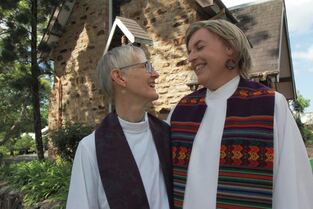 ‘I didn’t marry a gender. I married a person.’ - this has always been a truth of our marriage, before and after Josephine came out as a transgender woman. Just as God ‘looks on the heart’ not ‘outward appearance’ (1 Samuel 16.7), our gender and sexuality are not the core of our lasting relationship. What matters is the love we have for one another, part of God’s greater love. In that way, ‘rainbow marriage’ is also a gift for all... 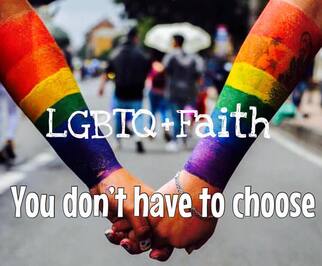 I speak today as both a proud member of our LGBTIQA+ community, and also as a dedicated person of faith, indeed as an Anglican priest. I do so, because people like me are typically erased, our lives and voices ignored. Yet we queer people of faith do exist! - and we are increasingly seeking to be visible. For our very existence gives lie to the monstrous misuse of religion for political ends. We suffer particularly profoundly from religious discrimination. We do not want religious exemptions which hurt us and others, and betray the heart of who we are. We also know that the majority of our fellow Australians of faith agree with us, as we saw in that dreadful postal survey. So we’ve tried to lobby, spoken to Government inquiries, sought to be part of desperately needed change. Yet, as queer people of faith, our rights to religious expression are seldom recognised... 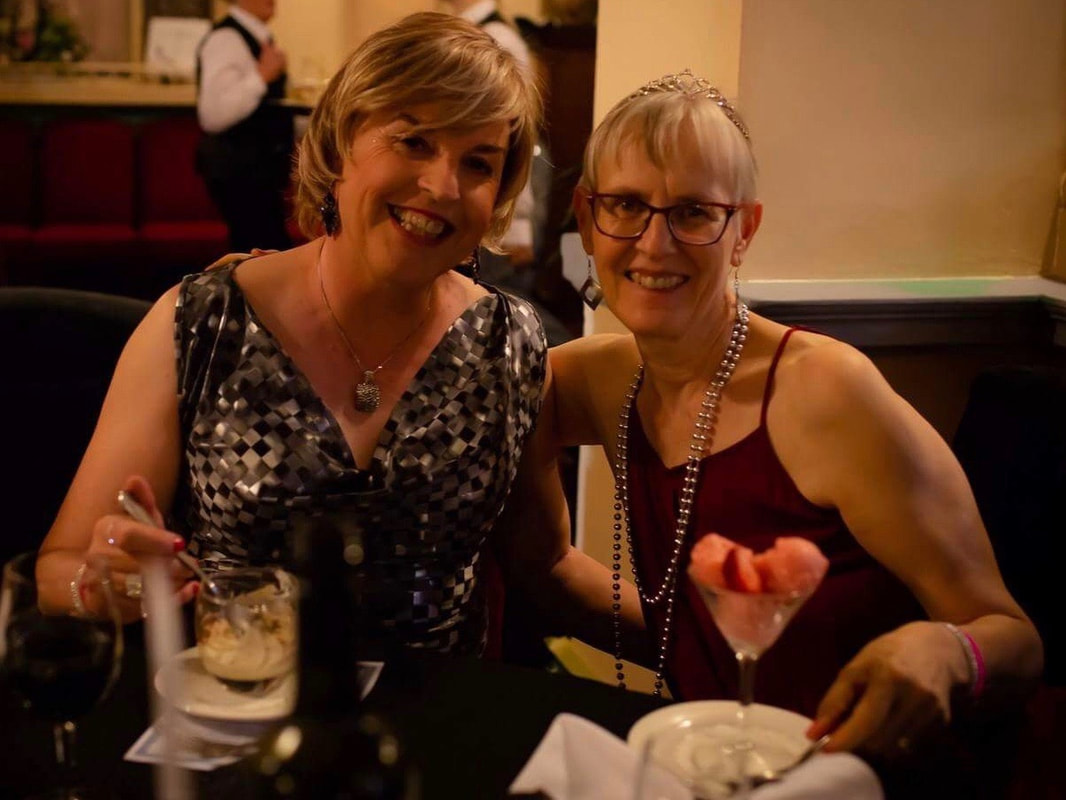 In times to come it will be extraordinary to imagine that some Christians insisted on married transgender people divorcing if they wished to claim their full identity. How scandalous a betrayal of God's love and Christ's teaching this is! It has been a long journey to address this in secular law in Australia and, sadly, the battle is not over in some religious quarters as well as in many parts of the world. Queensland, in which I now live, thankfully finally changed its law last night (with only four votes against, from the fringe Katter and One Nation parties). Hitherto, married transgender people have had to divorce if they changed their birth certificate to their true gender. I rejoice for friends and others who will directly benefit from this. For I know the pain this law has caused and have personally therefore lobbied hard for change. It will also be an encouragement for other necessary steps forward and for more religious people to come to their senses and renew their understanding both of marriage and of people of gender diversity. I write this with feeling, as well as after deep reflection on these subjects. For the status of my own marriage is under question in some slowly moving and blinkered parts of the Church, even in Australia itself. A leading member of the Anglican Diocese of Sydney for example has even gone so far as to challenge both my marriage and the ministry of my wife and I as 'living contrary' to the doctrine of Christ - see further transgender and the doctrine of marriage in Brisbane. Of course, in that instance, the aim is a distinctly political one: to attack my archbishop, my diocese and the mainstream pastoral approach and unfolding theology of the Anglican Communion as a whole. Yet such 'stop the world, we want to get off' thinking will not work. The ground is shifting in religious spheres too, as the actual lived experience of transgender people and their loved ones is gradually being revealed. Anglicans and other Christians across the world are responding, if sometimes hesitatingly, burdened as we are too much by our often exacting processes and the frenzied reactions of some. The Church of England for example, the church of my birth, has declared that it fully welcomes me and other transgender people, at every level of its life. As its leadership have expressed it (with my emphasis): The House of Bishops welcomes and encourages the unconditional affirmation of trans people, equally with all people,within the Church, the body of Christ,and rejoices in the diversity of that one body, into which all Christians have been baptized by one Spirit. My concern however is not with politics but with the love of God in people's lives. For, in some ways, in the face of such great odds, transgender people are still 'living miracles' even to exist at all - and some of us, tragically, do not make it. Our relationships are also always challenged, and sometimes shattered, by becoming more fully the people God has created and called us to be. The misery of rejection some of my gender diverse friends endure cuts me to the heart. So why would we not seek to strengthen those relationships which have not only worked through demanding change but have emerged stronger? In my case, and in others I know, my marriage is so much deeper for the full truth we live together. My wife could long see that we were suffering unnecessarily for years: 'where has Josephine gone?' she would say when I struggled to come to terms with myself. She knew, better than I, what I, and we together, needed. No marriage is 100% perfect, and I do not pretend to be a moral paragon in my relationships in the past or present, but it is insulting, as well as disappointing, when fellow Christians cannot recognise that my marriage, of 33 years to date, is not a rich example of God's sacramental love to the world (nb. that is my wife and I above in case such a picture is needed). In transitioning, I and others have not chosen (as has been alleged) 'to challenge the Biblical view of marriage' or to place my archbishop, or any one, 'in a difficult position'. Rather, we have simply sought to respond more fully, faithfully, with the whole of our being (as human beings, Christians, and priests), to the love of God for us. Of course, this means that we need to renew some aspects of received understanding. That however is the history of Christianity, as well as that of humanity as a whole, as we have developed our theology of marriage over 2000 years: working through inherited patriarchy and polygamy, rejecting women's subordination (and, for most of Christian history, lack of legal rights), developing compassion and legal recourse for those trapped in violent or unhealthy marriages, and embracing what is good in companionate relationship. Moving beyond the pressing past survival and scarcity preoccupations which informed obsessions with procreation and cis and hetero-normativity, our liturgies today increasingly reflect the wisdom we have gained and the love to which we aspire. There is a desperate resort of late to seeking proof-texts, such as Genesis 1.27 and Matthew 19.5, which may turn back the waters. However, apart from the inability of such texts to be bear the strain (even when isolated from their context and the weight of scholarship), this only confirms such Christianity as a latter day Canute, fruitlessly resisting a sea-change of love and affirmation. I therefore urge all people of faith similarly to affirm unconditionally the lives, marriages and loving relationships of transgender people. Rather than be anxious, never mind put stumbling blocks in our lives (or worst still 'conversion' therapies), why not work with us at providing appropriate pastoral resources to strengthen our relationships? We certainly need them. Listen, educate, and above all hear and affirm the love and faith we have to share. It is astonishing to me that Christians would not want to see healing and the renewal of such love for others. Marriage, like the sabbath, as Jesus might have said, is not made to subjugate the wondrous diversity of human life into a constricting bed of pain. Marriage, at least for Christians, is made for God's renewing of humanity. 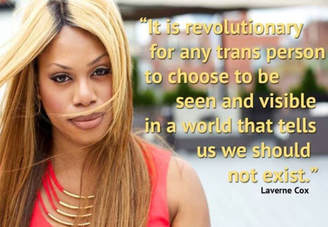 It is appropriate that this year's Transgender Day of Visibility is also Holy Saturday in the Western Christian tradition. For Holy Saturday is easily passed over, sitting awkwardly as it does between Good Friday and Easter Sunday, between pain and joy, shame and liberation, death and new life. Yet those themes are central to the experiences and journeys of so many gender diverse people, and of course others. Indeed, reading and experiencing the Passiontide narrative and Paschal mysteries 'with transgender eyes' can shed positive new light on the Christian Gospel, as well as strengthening and deepening life for many of us. Like Holy Saturday, gender diverse people are easily regarded as awkward and passed over. However our own border crossing, interstitial, and boundary transforming existences are essential parts of the whole and powerful reminders that profound transformation typically appears in the threshold times, parts and people of our lives and world. This involves much, even deep, pain, but also tremendous hope and vitality... |
AuthorThe Revd Dr Jo Inkpin: Archives
March 2024
Categories
All
|
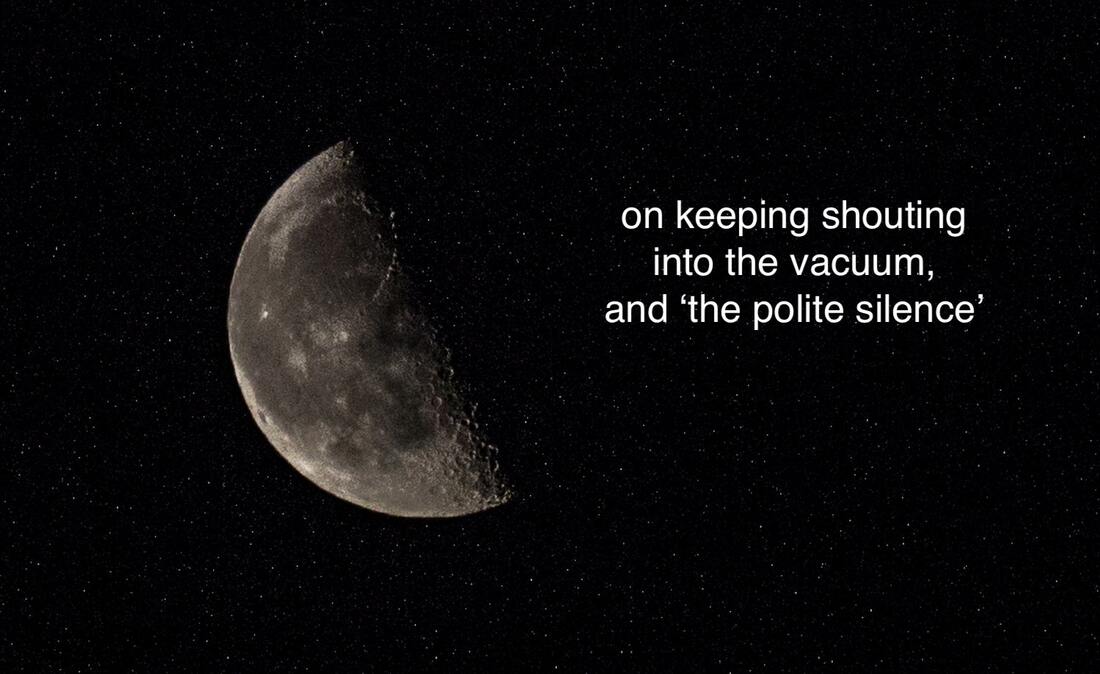
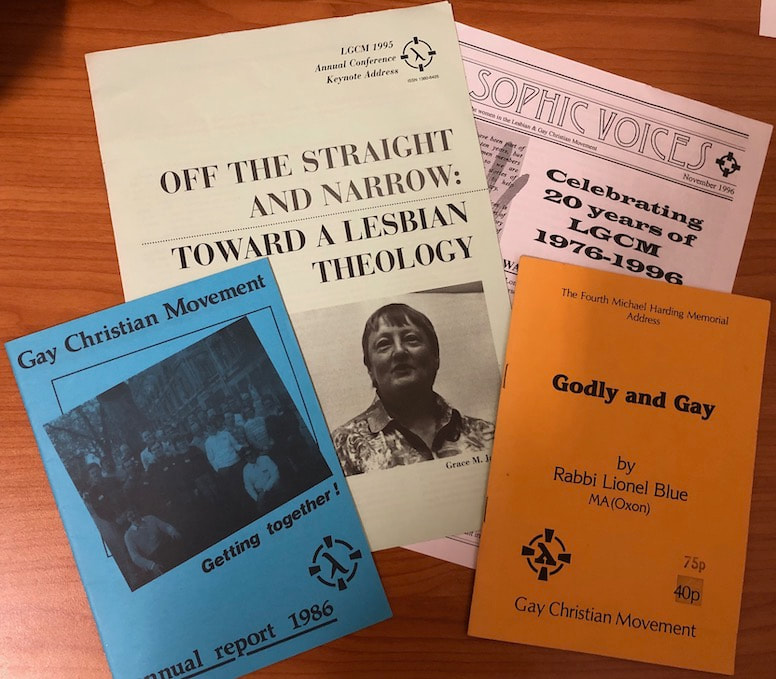
 RSS Feed
RSS Feed